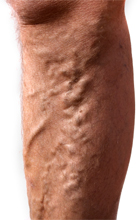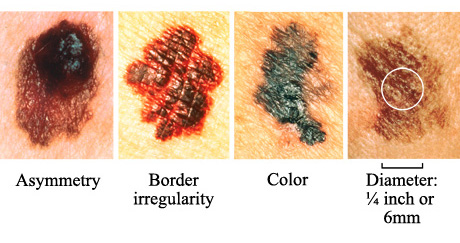Medical Procedures
Varicose Veins Treatment

Varicose veins are more common among women, although our office treats a nearly equal number of men and women for treatment. As you get older, the risk of developing venous disorders increases. Lifestyle choices, genetics, and pregnancy can all play a role in whether you are prone to developing varicose veins. When you develop this condition, you may experience aching, cramping, throbbing, pain, ulceration, swelling, and other symptoms that may require medical care. If you experience any of these symptoms, we recommend seeking medical care to avoid further problems.
We typically diagnose varicose veins through an ultrasonic and physical examination of the area. We often start with conservative treatment options, such as keeping your legs elevated, wearing compression stockings, and losing weight. If the varicose veins remain, we may recommend other treatments.
Sclerotherapy can be used to treat varicose veins. This treatment involves injecting a solution directly into the veins, causing them to disappear over time. Four treatments are typically needed to achieve the results you’re looking for. Endovenous laser therapy, or EVLT, is the latest technology for non-surgical vein solutions. This minimally invasive treatment takes about 30 minutes and can be performed under local anesthesia. It has widely replaced the old-fashioned surgical stripping procedures done in hospitals. Our vein clinic has performed over 4,000 EVLT procedures, making us one of the most experienced centers in the state of Illinois and entire Midwest. Dr. Garg or Dr. Ashpole will determine the most appropriate treatment plan for your individual condition.
There are no known methods of preventing the development of varicose veins. However, you can take certain precautions to reduce your risks, such as:
- Maintaining a healthy weight
- Elevating the legs
- Exercising regularly
- Eating a high-fiber, low-salt diet
- Sitting or standing at regular intervals
One of our vein doctors will provide you with more information as to how you can reduce your risk of varicose veins and maintain strong vascular health.
To learn more about our Varicose Vein procedures, please call us today to schedule an appointment or visit our Veins Without Surgery website. Our vein clinic in Chicago even offers Sunday hours to accommodate your work schedule.
Excision of Benign & Malignant Skin Lesions
Plastic surgeons are often utilized by dermatologists or preferred by patients themselves to remove skin lesions, especially in cosmetically sensitive areas such as the face. Many patients feel more comfortable having a plastic surgeon remove skin or subcutaneous lesions, understanding that removal of a skin lesion with advanced closure techniques used by plastic surgeons like Dr. Ashpole can make the difference between a well-hidden, nearly unnoticeable scar, and an unattractive and obtrusive scar. What some patients may not know is that excisions performed by certain plastic surgeons like Dr. Ashople are usually covered by their insurance carrier. At Chicagoland Aesthetics we use the preferred pathology lab Dermapath, which specializes in the reading of skin and subcutaneous lesions.
Using a plastic surgeon’s closure techniques are also advantageous since they practice fine suturing methods, giving you a favorable scar outcome. This may also include local tissue transfer techniques or skin grafts in the case of larger lesions, or in areas with limited local tissue such as the nose, eye, or ear area. We recommend using our physician strength scar cream Kelocote post-excision to give you the best possible outcome.
As a plastic surgeon in the Chicagoland area, Dr. Ashpole has broad experience in the excision and closure of skin lesions. These skin lesions can include:
- Benign lesions- pigmented nevus, moles, cysts, lipomas (fatty tumors under the skin)
- Pre-malignant lesions- actinic or seborrheic keratoses
- Malignant lesions -basal cell carcinoma, squamous cell carcinoma, and melanoma
How do I know what to look for?
Please refer to the ABCDE’s of skin cancer.
A for Asymmetry- One half is different than the other half.
B for Border Irregularity– The edges are notched, uneven, or blurred.
C for Color- The color is uneven. Shades of brown, tan, and black are present.
D for Diameter– Diameter is greater than six millimeters.
E for Evolving– Rapidly changing in size or appearance.
A good rule of thumb: Any non-healing lesion that is bleeding, excoriated (flaking) or ulcerated after 4 or more weeks, or any rapidly developing or darkening lesion or mole should be biopsied and possibly removed. Certain lesions can be removed fairly quickly in the office. For lesions that are suspected to be of a more urgent malignancy, frozen section pathology can be arranged to ensure that adequate margins are excised. This is usually performed in a surgery center like St Alexius Hospital. We feel this is a preferred alternative to Moh’s microsurgery techniques, which often leave larger defected areas and typically need to be closed by a plastic surgeon afterward.
Cancer Removal
Skin cancer is the most common form of cancer in the United States and involves abnormal growths of skin cells that can form anywhere on the body, but most frequently appear on skin that is exposed to the sun. There are more than a million new cases of skin cancer in the US each year. Although most cases of skin cancer can be successfully treated, it is still important to keep skin safe and healthy to try to prevent this disease.
There are three major types of skin cancer that affect associated layers of the skin. Basal cell carcinoma, the most common form of skin cancer, affects the basal cells, which lay under the squamous cells and produce new skin cells. Basal cell carcinoma is the most readily treated form of skin cancer. Squamous cell carcinoma, the second most invasive form of skin cancer, affects the squamous cells, which are just below the outer surface of the skin and serve as the inner lining. Squamous cell carcinoma is best treated as soon as it is detected. Melanoma is the most serious form of skin cancer and affects the melanocytes, which produce melanin. Melanoma can be fatal if left untreated.
Medical attention is necessary after noticing any skin changes, as early detection is valuable in successfully treating skin cancer. Regular full body screening is recommended as well. A biopsy is usually performed to accurately diagnose suspected cancerous growths.
Treatment for skin cancer depends on the type, size, and location of the tumor. Most options remove the entire growth, are usually effective, and can performed in an outpatient setting. Skin cancer treatment methods include excision of the lesion (sometimes using a frozen section pathology), and sometimes in conjuncture with medications like Efudex cream and actinic keratoses.
Although most skin cancer treatments are successful, recurrence is still possible. It is therefore important to practice preventive measures and see your doctor regularly. Self-skin exams are also a good idea to spot any changes promptly.
Source: NCI Visuals Online. Skin Cancer Foundation.
Breast Reconstruction
Notable for his outstanding bed-side manner and comprehensive skills as a breast surgeon in the Chicagoland area, Dr. Ashpole performs breast reconstruction using several sophisticated techniques for his patients. We either perform the reconstruction at the time of your mastectomy along with your general surgeon, or the reconstruction may need to be performed at a later time. Dr. Ashpole is one of the area’s specialists in staged expander-implant reconstruction and also performs autogenous or “own tissue” techniques like TRAM flap or latissimus dorsi reconstruction. Whatever your situation and needs, our plastic surgeons and the staff at Chicagoland Aesthetics, are dedicated to helping you feel womanly and whole again during this challenging period in your life. We proudly support Breast Cancer Awareness and the strong women who must endure and overcome this incredibly trying condition.
Hand Surgery
While the options for undergoing hand surgery are numerous, Dr. Ashpole is well-trained to handle a variety of surgeries of the hand and fingers, including Carpal Tunnel Syndrome, Trigger Finger, and Dupuytren’s Contracture. He completed his hand fellowship at Rush University Medical Center in Chicago. For traumatic, bony, or reconstructive hand surgery, the Chicagoland area has many hand-specialists who can best serve you.
Carpal Tunnel Syndrome is a nerve compression syndrome that often occurs as the result of repetitive or cumulative trauma in the base of the palm of the hand. Symptoms include pain, “pins and needles” feeling in the fingers, numbness, or even weakness of the hand. These symptoms are usually worsened by activities that initiated the process in the first place, or by positioning that places stress on the wrist or hand, such as typing or driving. Carpal tunnel syndrome is treated surgically by release of the roof of the tunnel at the base of the palm. This outpatient surgery is usually performed under light sedation, and generally requires a wrist immobilization splint for 4-5 days.
Trigger Finger (or tenosynovitis), is a restriction of motion involving the tendons at the base of the affected finger. In this situation, inflammation occurs, and the fingers occasionally stay in a flexed position, leading to locking of the finger. This can be treated by a steroid injection into the affected area which may decrease inflammation and provide relief for several months, but if this fails after several attempts, surgery performed under local or general anesthesia is recommended.
To learn more about any of our Medical Procedures, please call us today to schedule an appointment







